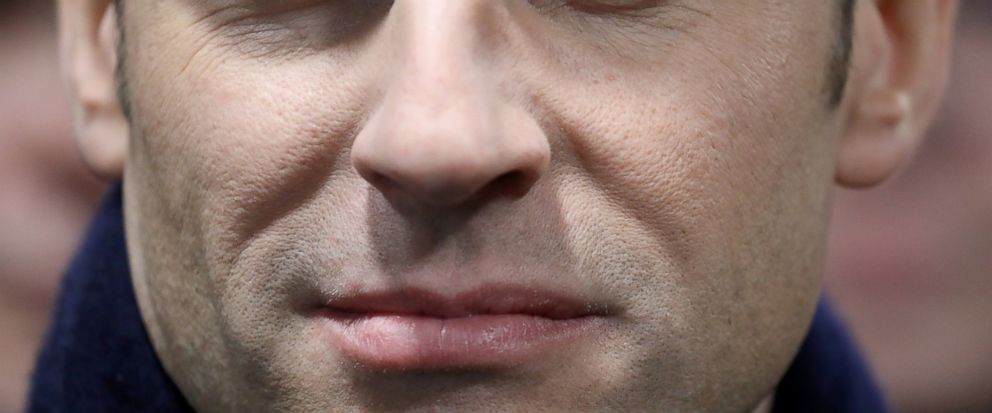2 Frenchmen on trial for stealing Macron's online identity
Two Frenchmen are going on trial for allegedly stealing Emmanuel Macron's online identity last year when he was running for president.
The unusual case, to be heard Wednesday in a Paris court, follows a complaint filed by Macron days before he was elected French president in May.
The main defendant, Jean-Paul Mongin, a 38-year-old book editor and conservative right-wing activist, is accused of using a Gmail address purporting to belong to Macron to send a long political email titled "10 good reasons not to vote for me" and signed "Emmanuel."
Also on trial is an acquaintance of Mongin who allegedly helped him create the email address and send the text to a list of about 100 recipients just before the first round of the presidential election, according to the prosecutor's summons.
The email was then forwarded to other people, including journalists and members of Macron's campaign.
Mongin has admitted writing the email and using the Gmail address but denied any intent to really pose as Macron, according to his lawyer. He faces up to one year in prison and a 15,000-euro ($17,600) fine if convicted of passing himself off as someone else "in order to damage their honor or reputation."
The same day the complaint was filed, Macron's campaign separately said it had fought off a series of cyberespionage attempts and that multiple sophisticated phishing operations, using lookalike emails, had been thwarted.
A few days later, links to a large set of data purportedly taken from Macron officials were posted online just before the presidential runoff. His campaign confirmed that several officials had had their email inboxes broken into.
Henri de Beauregard, the lawyer for Mongin, argued that the email written by his client, by its very content and title, clearly could not come from the real Emmanuel Macron. "For any reasonable and good-faith readers it was obviously a satirical and ironic political tract," he told The Associated Press.
"It's so ridiculous, but also worrying for civil freedoms and political debate," de Beauregard insisted.
The lawyer for Macron couldn't be reached for comment before the trial.
At the request of Macron, the French Parliament is preparing a bill to fight fake news, expected to be discussed in the spring. It aims to allow courts to suppress false information disseminated around electoral campaigns.
- Star
Add Interests Customize your news feed by choosing the topics that interest you.
To save your interests across all devices Log In or Sign Up »Source – abcnews.go.com






